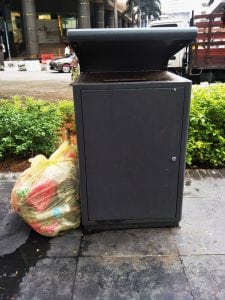Reduce Your Family’s Food Waste (And Save Money)
8 Ways to Reduce Your Family’s Food Waste
Each year, the average family squanders thousands of dollars on wasted food, throwing away approximately 25% of the fare that they purchase. Not only is this a waste of money, but it is also a waste of resources and leads to extra trash in landfills. Fortunately, there are ways that you can reduce your family’s food waste, leaving more money in your pocket.

Plan Ahead
The easiest way to reduce your family’s food waste is to only buy what you need. Unfortunately, this requires some planning ahead of time. Menu planning before you head to the grocery store is a great way to determine what you’ll need for the week, and you’ll also cut out any excess items. Be realistic about what your family needs, and don’t over-purchase items just because they are on sale.
Buy In Bulk
When it comes to dry goods, one size doesn’t always fit all. You may not need an entire box of granola for one recipe, so it is better to buy in bulk. The bulk bin at your local grocery or natural food store is a great way to try out new products without purchasing – and potentially wasting – more than you need. You can buy rice, beans, trail mix, spices, and snacks in bulk, and you’ll also cut down on wasteful packaging.
Know How Long You Have
To avoid throwing out food, it is important to understand just how much time you have before the item spoils. Understand food expiration dates, whether this involves reading use-by dates off of store-bought packages or researching shelf life limits on produce and bulk items. Freezing, pickling, and canning your food can also extend its life and the amount of time your family has to consume it before spoiling.
Rearrange Your Pantry
Your local grocer will typically arrange store shelves so that the items with the closest expiration dates are in front. You can adopt this same strategy with your pantry. Move items that are nearing their expiration dates toward the front. Then, you can plan your meals around which items you need to use first.
Freeze Extra Food And Leftovers
Whether you have leftovers after dinner or you picked too many strawberries at the local farm, freezing can help reduce your waste. Simply package the extras in air-tight containers, pop them in the freezer, and enjoy them later. By labeling your frozen items properly, you can also keep track of how old they are. These dates will serve as some extra encouragement to use those food items again before they go bad.
Repurpose Your Vegetables
Vegetables are one of the easiest food items in your home to repurpose. If you have some extra vegetables that you need to use before they spoil, throw them in the crock pot to create a stew or homemade soup. You can also turn them into dessert, creating a rich carrot cake or a kid-friendly loaf of zucchini bread.
Explore Composting
If you want to reduce your food waste and you have extra space at home, why not try composting? By combining soggy food scraps with yard trimmings in a barrel, you’ll create a rich, dark substance that is perfect for your yard or garden. You’ll enhance your garden’s ability to grow large, healthy plants while also reducing your household trash volume.
Donate Items You Won’t Eat
The time may come that you simply can’t – or won’t – eat some items in your pantry. Perhaps your child is a picky eater or there is an allergy in your household. Regardless of the reason, there are always needy organizations who are willing to take in your unwanted non-perishables. Box up what you care to spare and take it to your local food bank. Your excess food will go to a good cause, reducing your family’s waste in the process.
Reducing your food waste will help to conserve resources and energy while saving you hundreds of dollars each year. By taking some important steps, you’ll lower your carbon footprint while feeding your family.
